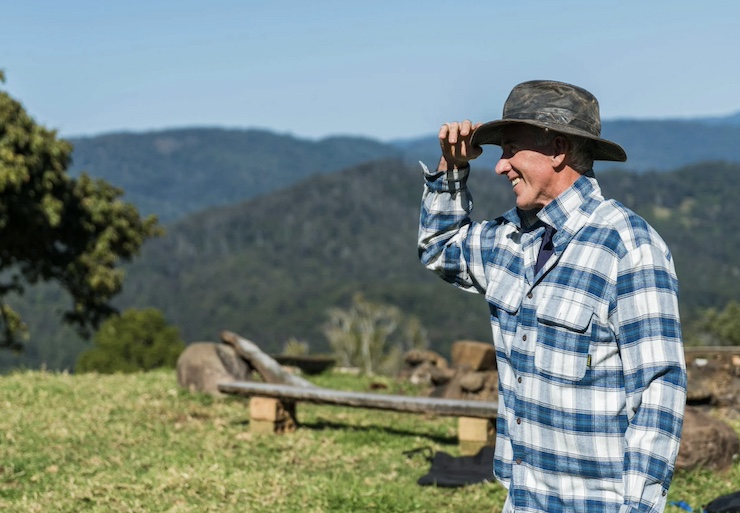
Weeds are a menace to any property owner. For most homeowners, it’s easy enough to treat your lawn with specialized chemicals and pull up any remaining pesky weeds. But for farmers, weed growth can easily compromise harvest yields. An example is a weed endemic to North America called burcucumber, also known as wild cucumber. This plant grows as a vine with prickly burs to cling to host plants. Studies conducted by Penn State Extension recommend treating burcucumber as soon as possible because they can quickly grow out of control.
As explained by Penn State Extension, burcucumber weeds germinate every summer and grow rapidly. Corn crops are particularly susceptible to them as the vines thrive climbing up tall corn stalks. The weeds will then limit the nutrients needed for the corn plant to properly mature, resulting in diminished harvest yields. It is essential to treat crops with chemicals that will curb the spread of burcucumber throughout the growing season. In North America, farmers have several methods for applying such herbicides and pesticides.
The two main methods would be by air using small crop duster planes or on the ground with tractors. Both are effective, yet, they can be time consuming or very costly. In recent years a new method has proven to not only be highly effective but can save farmers countless hours and dollars in the long run. This method is the precise application of pesticides with drones. Drone use in agriculture is one of the fastest growing sectors of the drone industry with many options now available to farmers.
Combined with computer learning programs, a drone can treat large plots of land in record time with extreme precision. Drone pesticide applications are far more precise than pesticides applied by manned aircraft or tractors. Farmers in New Hampshire are currently trying to have a bill passed that would allow them to use drones to spray pesticides more freely. House Bill 1698 would allow farmers to use drones to apply pesticides without having to follow notification procedures.
Robert Bruleigh, who works in the division of pesticide control at the New Hampshire Department of Agriculture, Markets and Food, understands why farmers are trying to get the bill passed. He explained that to use drones, farmers need to abide by the same notification procedures used by manned aerial pesticide methods. This is a cumbersome, lengthy process that is ineffective for farmers trying to protect their crops from the spread of burcucumber. Also, the current standards apply to chemicals being used in wide areas (like mosquito management) with the risk of drifting that could pose a risk to people and animals.
Drones would only be allowed to fly 20ft above a target area when spraying chemicals. The drones would also be able to utilize cameras, GPS, and advanced programming to only spray areas in need. This would limit the amount of chemicals used in each application and lessen the amount that drifts through the air beyond the designated area. However, they are meeting a great deal of resistance from local beekeepers.
Mary Ellen McKeen is the president of the New Hampshire Beekeepers Association. The organization represents around 250 beekeepers in New Hampshire. Mary Ellen explained that if bees, which can travel upwards of 3 miles when foraging, come in contact with a pesticide and die in the field, that’s one thing. But if the bees survive and return to the colony contaminated with the pesticide, the entire colony can be wiped out. “Without them telling us what they’re spraying and when they’re going to do it, we have no way to protect our colonies,” Mary Ellen said. According to Mary Ellen, if beekeepers know when pesticides are being sprayed, they can keep their hives closed until it is safe.
And while everyone involved wants to protect bees and other pollinators, the fact remains that the pesticides are already being used. Using drones, Robert pointed out, would be a safer option for pollinators. “It’s actually a scaled down version of what they might already experience,” he said. “Someone going into their field with a tractor does not do a notification. [Drones] are treating the same property, just at a max of 20 feet and using much smaller quantities in a very localized setting.”
New Hampshire has already registered the use of 13,000 different pesticides along with an estimated 2,700 pesticide application licenses. With the passing of House Bill 1698, farmers would be able to treat their fields with drones much like how they use tractors. They would not need to apply for a permit 120 days before application. This permit would also require farmers to notify the public, who would then be allowed to protest the application. The current process was established in 2006 as a way of protecting people and animals from the broad application of chemicals being dropped from hundreds of feet in the air. With advancements in drone technology, farmers may soon have a new tool in their arsenal to treat pesky weeds cheaper and more efficiently.
|